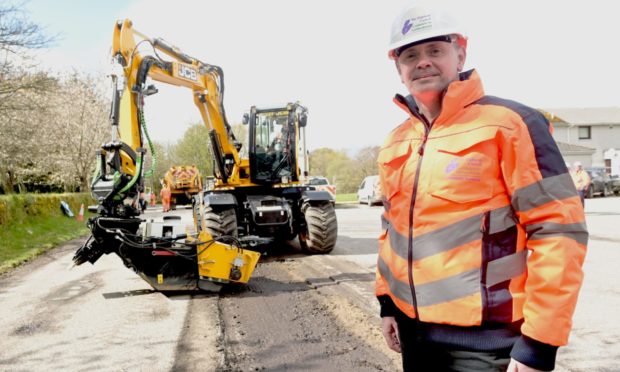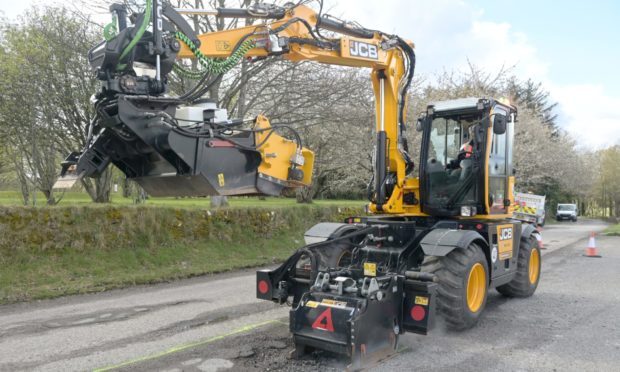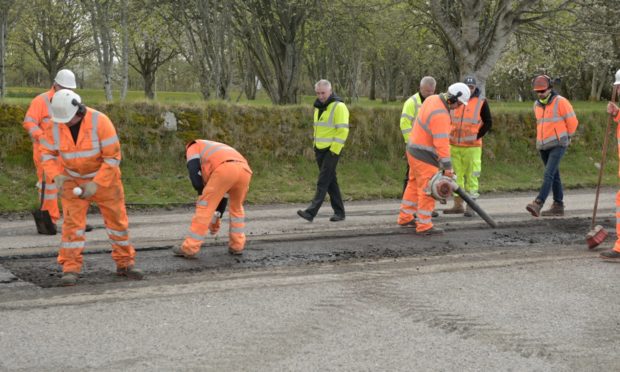A new weapon in the seemingly never-ending fight against potholes is being trialled in the Highlands.
The issue has been a challenge for local authorities for many years with millions of pounds being spent on repairs amid complaints from drivers.
With tourists beginning to arrive in the area due to lockdown restrictions lifting, a new vehicle is being showcased across Scotland in the hope it will ease some of the problem.
A demonstration of JCB’s PotholePro, which is said to fix a pothole in just eight minutes, was held in a car park in Alness for Highland Council ahead of similar events planned in Aberdeenshire and Tayside.
The machine, which costs up to £180,000, can cover 250 square metres per day, with each square metre costing £29.28 to repair.
PotholePro product specialist Paul Swallow said: “There are four key benefits to this machine; productivity- it does a pothole every eight minutes on average and in a typical month it can do about 400 potholes.
“There is an environmental benefit – it does three jobs in one as it does the cutting, the cropping and cleaning, so there are fewer machines on site. There is a safety benefit, all the work is done from the cabin so it’s getting people out of live highways and repairing potholes makes the roads safer.
“And it’s a permanent repair. People get frustrated at potholes recurring year after year but this means they are not coming back.”
Highland Council has more than 4,000 miles of road network. Last year it announced its biggest ever single investment in roads with an extra £20 million of capital and an additional £1.3million of annual revenue for road maintenance, supported by a 4.84% increase in council tax.
Highland has a huge road network
Malcolm MacLeod, the council’s executive chief officer – infrastructure and environment, watched the demo. He said: “We have a huge road network and we are looking at all opportunities to improve our plant across the Highlands.”
He said the authority is looking into technology like the PotholePro to see whether it can improve efficiency and safety on Highland roads.
“We are looking at JCB and a whole range of other plant and equipment that would help us deliver road improvements more efficiently. We hope that if we can demonstrate that these can deliver better efficiencies the council will support that.”
He added: “All of our strategic road improvement work is driven by the road maintenance survey carried out on an annual basis, so we know where the areas are that require the most investment.
“But with weather conditions, the pothole issue is always going to be there and we certainly do our best to repair these as quickly as we can once they are reported.”
The total number of potholes in the region, and those fixed by the authority, is unknown as they are recorded as “works instructions” which can be for a single or multiple number of potholes.
Latest figures show that during the 2020-21 financial year there were 1,036 works instructions raised up until January 12 this year, with 975 completed.
The council also does not record individual or average pothole repair costs as the work goes into one budget which includes other road maintenance activities.
In 2019, Freedom of Information statistics figures revealed councils in the north and north east faced a bill of more than £13.65 million over two years following tens of thousands of complaints.


